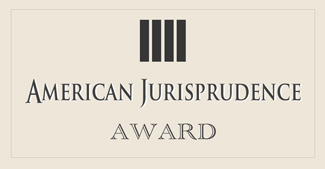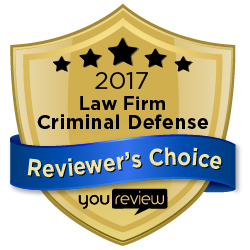
Examining Utah Code 76-5-111, you will discover that there are many descriptions of actions and inactions that can be considered abuse of a vulnerable adult. The statutes 76-5-111 through 76-5-114, along with Sections 112 and 112.5, tell a long story about what leads to charges in this class of abuse. This set of laws further details how the punishments for various combinations of actions and degrees of action constitute crimes of increasingly serious degrees. If you are caring for a vulnerable adult or are charged with abuse, it’s worth becoming familiar with those statutes. Below are some of the most important points you should be aware of about this part of Utah law.
Click to jump to the section:
- Abuse of a Vulnerable Adult
- Who is Considered a Vulnerable Adult?
- Aggravated Abuse of a Vulnerable Adult
- Personal Dignity Exploitation of a Vulnerable Adult
- Financial Exploitation of a Vulnerable Adult
- Endangerment of a Vulnerable Adult
- Defense Against Abuse Charges, Wasatch Defense Lawyers
If you are accused of abuse of a vulnerable adult, call Wasatch Defense Lawyers as soon as possible after you are charged, ideally before you speak with the police.
What is Considered Abuse of a Vulnerable Adult?
Under Utah law, abuse of a vulnerable adult can involve knowingly causing or attempting to cause harm to someone or causing them to fear immediate harm. Or, it may be an act of inappropriately restraining, medicating, isolating, or depriving the person of life-saving treatment, among other descriptions. Generally, abandonment of a vulnerable adult by a caretaker is defined as an act of abuse. The abuser may be any authorized caretaker. Isolation of a vulnerable adult is abuse (Third Degree felony).
Harm means pain, mental anguish, emotional distress, physical or psychological distress, injury, or suffering that is knowingly inflicted.
In some cases, consent is claimed by the defense. The threshold is whether or not the accused knew or should have known whether the vulnerable adult lacked the mental or physical capacity to consent voluntarily. It is not abuse to conform to the choice of a vulnerable adult to use only religious, nonmedical approaches to healing instead of medical care.
In addition to criminal penalties listed in the sections below, applicable counseling may be required as a condition of the sentence handed down by the court.
Neglect: The crime of neglect is also extensively detailed in these statutes, but it differs from abuse. Abuse is defined as an act that is committed, whereas neglect is defined as an act that is omitted when the omission of it leads to potential or real harm. However deliberate deprivation of any of the above kinds of care or withholding of medical treatment when this could or does cause physical harm, such actions can be defined as abuse vs neglect.
There are exceptions to criminal conviction in cases in which legitimate purposes relating to the alleged abuse, neglect, or exploitation can be shown.
If you face trial on allegations of abuse of a vulnerable adult, you need the best Utah criminal defense lawyer you can get to protect your rights and build an effective defense strategy.
Who is Considered a Vulnerable Adult?
A vulnerable adult is an older or dependent adult with a physical or mental impairment that substantially impacts the person’s ability to provide for himself or herself. He or she is vulnerable due to his/her incapacity to manage personal protection, shelter, food, clothing, health care, or other necessities, obtain essential services, perform the basic activities of daily living, or control his/her resources. The vulnerable adult may not comprehend the nature of abuse, exploitation, or neglect perpetrated against him/her, or may be mentally or physically unable to protect himself or herself from it.
Aggravated Abuse of a Vulnerable Adult
Section 111.2 states that the caretaker commits aggravated abuse of a vulnerable adult if he or she causes or allows the person to suffer a serious physical injury. To be a crime, the injury must have occurred under circumstances that were likely to cause such an injury. Placing the vulnerable person in a situation dangerous to health and safety qualifies as aggravated abuse. A violation of this section is a:
- Second Degree felony if the act was done knowingly or intentionally.
- Third Degree felony if it was done recklessly.
- Class A misdemeanor if it was done by criminal negligence.
In addition to other sentencing, the convicted person may be required to pay for counseling ordered by the court.
Personal Dignity Exploitation of a Vulnerable Adult
Under Section 111.3, a caretaker of a vulnerable adult commits this crime if he/she knowingly, recklessly, or intentionally makes, displays, or transmits certain pictures or other images. Creating or showing certain images of a vulnerable adult without consent. Such images show the person’s unclothed breasts, genitals, pubic area, buttocks, or anus, or a clothed image of only one or more of those body areas. The statute also applies to showing the vulnerable person doing anything harmful to his/her health or safety, or anything offensive, demeaning, or unreasonable.
This crime is a:
- Class A misdemeanor if it is done knowingly or intentionally.
- Class B misdemeanor if it is done recklessly.
An action described in this section is not a crime if done with the consent of the vulnerable adult and the person is mentally and physically capable of voluntarily consenting.
Financial Exploitation of a Vulnerable Adult
Section 111.4 states that if a caretaker deceives a vulnerable adult in any one of many ways regarding property or the use of property meant to benefit the person, it is financial exploitation. Acting to persuade the person to enter a contract for the purpose of serving another person’s interest also constitutes this crime.
If the caretaker intimidates the vulnerable person, which means making overt or implied threats, to deprive him or her of assets that act constitutes a financial exploitation crime. Assets may include money, food, medication, clothing, shelter, social contact, health care, companionship, or supervision. Threatening isolation or harm to obtain such assets also constitutes this crime.
The crime is committed if the caretaker obtains and uses or attempts to obtain and use, or helps someone else obtain and use a vulnerable adult’s funds, property, other assets, or resources. Depriving the vulnerable adult of any amount of use of these qualifies as the crime. Misusing the power of attorney for the benefit of someone other than the vulnerable adult can also be defined as financial exploitation.
Committing financial exploitation of a vulnerable adult is a:
- Second Degree felony if the misappropriated assets total $5,000 or more.
- Third Degree felony if the total value of the misused resources is under $5,000 or can’t be determined.
- Class A misdemeanor if the offense is committed recklessly.
- Class B misdemeanor if the offense is committed with criminal negligence.
Endangerment of a Vulnerable Adult
Under Utah 76-5-112.5, exposing a vulnerable adult to a chemical substance to be used in manufacturing a controlled substance, especially in proximity to the manufacturing equipment for it is a crime. Exposing the vulnerable adult to access to a controlled substance that is illegally possessed, or to paraphernalia, or to the substance’s manufacturing odor is illegal. To be a crime of endangerment, the proximity must be such that the vulnerable person can ingest, inhale, or contact the substance in question.
The crime of endangerment of a child or vulnerable adult is a:
- Third Degree felony.
- Second Degree felony if the person is injured or seriously injured.
- First Degree felony if the person dies or the offense is extreme enough to be subject to greater penalties under other state laws.
Reckless endangerment: Under Section 112. of the seriousness of the offense does not rise to the level of a felony, this lesser charge may apply. Recklessly engaging in behavior that presents a significant risk of severe physical injury or death of the vulnerable person is a Class A misdemeanor.
Defense Against Abuse Charges, Wasatch Defense Lawyers
If you have been charged with abuse of a vulnerable adult in Utah, you need the most skilled Salt Lake City, Utah, criminal defense attorney to build the strongest case for your innocence. We’re here to protect your rights, your future, and your reputation.



